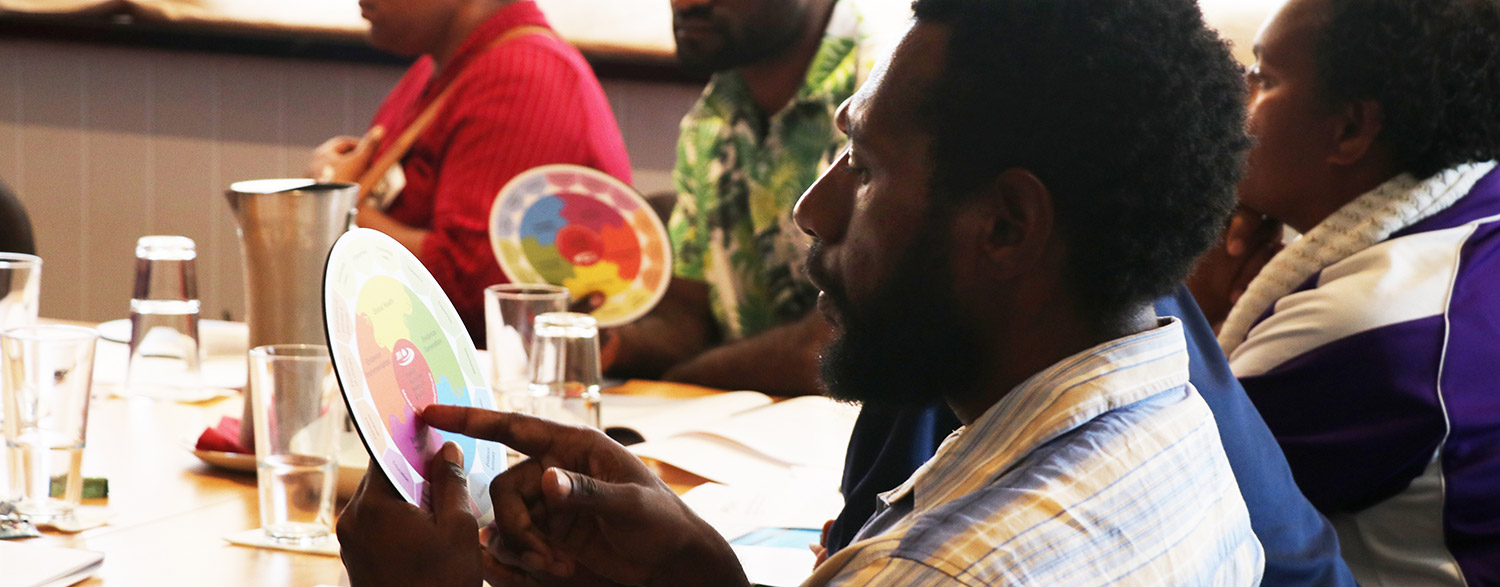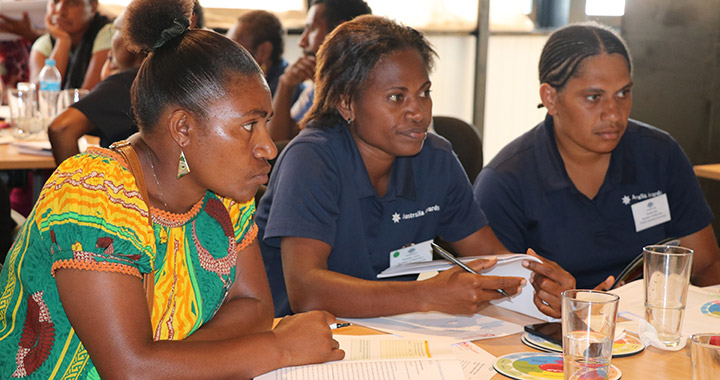
Midwives become agents for change in PNG
Spreading knowledge for practice change and evidence-based healthcare
JBI delivered its Evidence-based Clinical Leadership Workshop as part of the Australia Awards in Papua New Guinea (PNG) Midwifery Reintegration Workshop in Port Moresby on 10 and 11 March 2020. Building on from the Clinical Leadership workshops conducted in PNG in 2019, the workshop was a tailored version of the one-day JBI Clinical Leadership Workshop presented over two days for 46 Australia Awards Midwifery Reintegration participants. The workshop aimed to build the capacity of participants to manage, actively lead and facilitate change in their workplace, including conflict resolution, negotiation, communication and building workplace culture based on current best practice.
By delivering a tailored version of the JBI Evidence-based Clinical Leadership Workshop, JBI aimed to meet the specific needs of Australia Awards participants in PNG to further develop their leadership skills within local communities and health services.
In particular, the program aimed to enable participants to explore theories and concepts relating to clinical leadership and change management in healthcare. Senior Research Fellow Alexa McArthur explained that, “the content of the workshop aimed to facilitate guided participation through contemporary models and tools and to enable our participants to develop an understanding of strategies related to clinical leadership and change management in healthcare”. Dr Tim Barker added, “additionally, we aimed to equip health professionals with the knowledge and tools they need to become effective clinical leaders.
From the feedback received from the participants, the training facilitators achieved their aims. The participants were engaged and joined in happily with the discussions and activities. It was a special experience for the trainers to work with this remarkable group and to see how they overcame many of the challenges they see in day to day practice, and provide guidance and resources on how to further address challenges to become leaders and change agents. Additionally, the networking and celebration event on the first evening of the workshop was enjoyable and a useful opportunity for connection.

Feedback from the 46 participants indicated that they now feel empowered to act as effective leaders and implement evidence-based practice in their communities. As one participant said, “After your two days of presentation I believe I will be an agent of change, a good leader in my setting.”
We are excited by the impact these midwives will have as they apply their newly developed clinical leadership skills and knowledge to improve health outcomes in PNG. We share their enthusiasm as they go forth to lead practice change for evidence-based healthcare: “Thank you for sharing your time and knowledge with us. Now it’s my turn to spread this knowledge to others”.